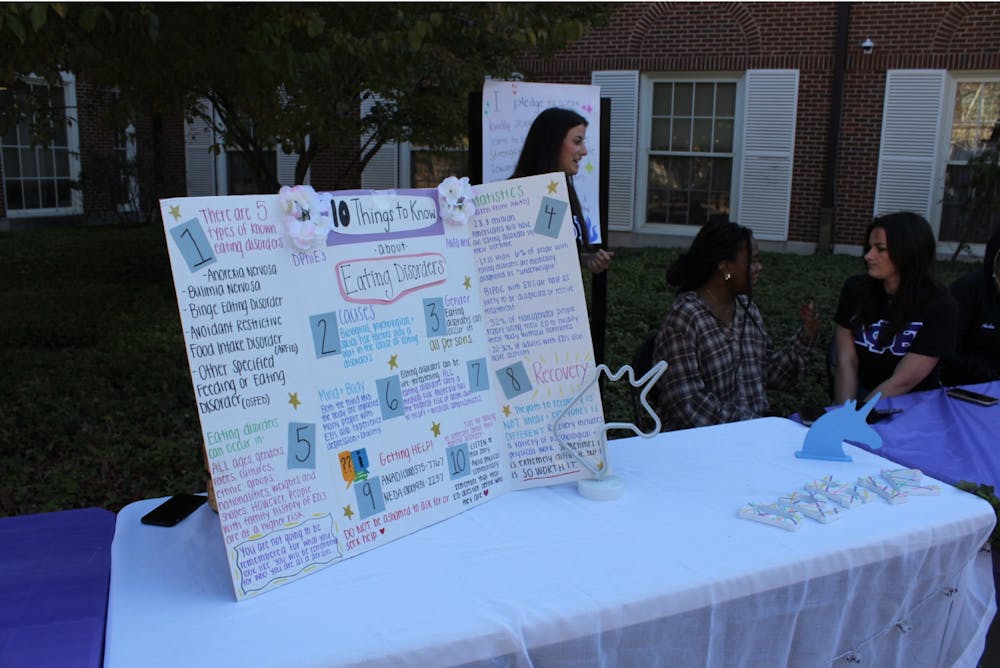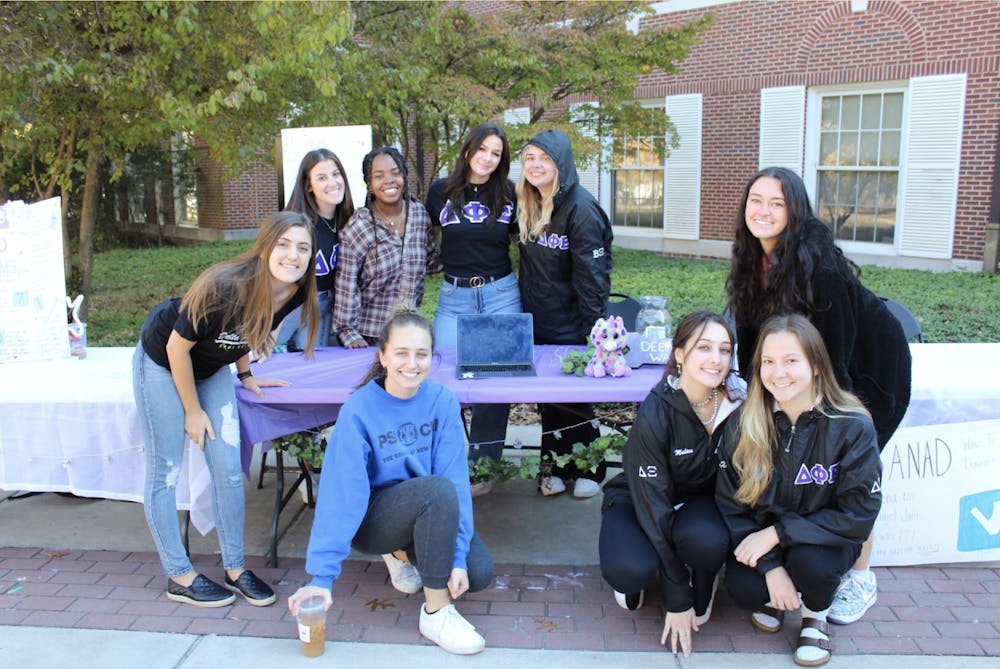By Delaney Smith
Staff Writer
Delta Phi Epsilon held its annual Anorexia Nervosa and Associated Disorders (ANAD) week event from Oct. 8 to 12 that focused on body positivity and eating disorder education. They set up a table on campus every day and hosted different activities that focused on self-worth and raised money to support the ANAD organization.
The events ranged from bracelet making to cutting size tags off of clothes to show that size does not dictate worth. All of the events focused on the education and prevention of anorexia and related eating disorders. The week was organized by Sajel Jani, a junior childhood special education and psychology double major, and Kailee Siedelhofer, senior psychology major. Both are sisters of Delta Phi Epsilon.
“It was very important to Kailee and I for this week to not just be another week where you raise money and don’t really learn much about it, and it doesn’t really impact people except for maybe their wallets,” Jani said. “We really wanted people to remember the events and, while it’s amazing that we did raise money, I’m not totally sure if that was the main goal this year for both of us.”
Jani and Siedelhofer said the turnout this year was remarkably better than the turnout for both virtual events held last year and the in-person events held two years ago. Siedelhofer believes that people were excited for this year’s ANAD week because of the return of the hands-on activities.
“I think, unfortunately, that a lot of people were impacted by eating disorders during Covid and lockdown with diet and exercise trends going around,” Siedelhofer said. “So I do think this year, more people were excited and more willing to participate.”

Delta Phi Epsilon used this poster at their table to educate the campus community about eating disorders (Elizabeth Gladstone / Photographer).
The New York Times reports that cases of eating disorders drastically increased during the Covid-19 pandemic and that “the National Eating Disorders Association helpline has had a 40 percent jump in overall call volume since March 2020.” This comes at a time when eating disorders are already common among college students. The National Eating Disorders Association reported in 2013 that 32% of females and 25% of males in college had eating disorders, up from 23% and 7.9% in 2000.
“I definitely think it’s extremely important, especially on a college campus, for people to take away the fact that what we’re trying to preach is [that] your physical appearance is not what encompasses your entire worth,” Jani said.
Jani and Siedelhofer added that, although the event did act as Delta Phi Epsilon’s philanthropy event to raise money, they stressed the importance of informing the college community about eating disorders. They also wanted their efforts to be inclusive of male-identifying people who may be struggling with eating disorders.
“I was actually shocked and impressed by the amount of men who were coming over and really enjoying making a bracelet,” Siedelhofer said. “They were very enthusiastic about it, and I got a lot of good comments from men as well.”
Beyond the education about eating disorders, the sorority hoped that tabling and body-positivity activities would overall brighten up students’ days. Jani said that even if participants that week did not have eating disorders, it felt nice to just be a place to practice self-love and offer support to anyone who needed it.
“It’s unfortunate how many people need to have these resources because it just impacts so many people, whether you realize it or not,” Siedelhofer said. “...Eating disorders don’t have a size. They impact everyone, not just the people who look like they may have it, but I’m grateful that we were able to actually make an impact.”







